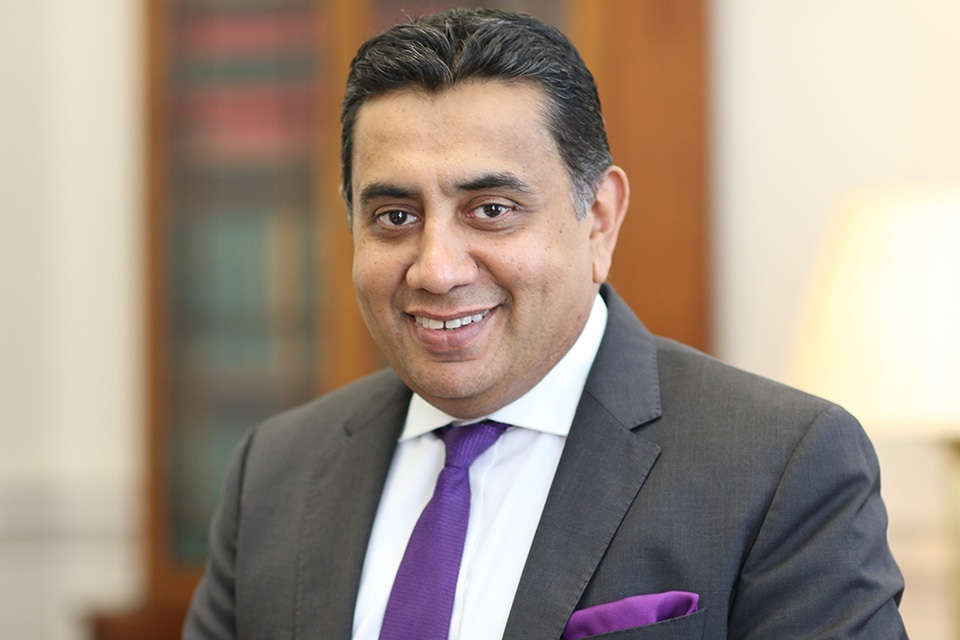Young people can help renew Britain's transport networks
For Britain to lead the world in transport once again, we need more young people to join the industry.

Thank you for that introduction, and thank you for giving me a chance to say a few words this evening (7 July 2015).
I offer my congratulations to everyone who has won prizes tonight.
It’s inspiring to see so many deserving winners.
And it’s an honour to hear so many brilliant musical performances.
Just after the general election in May, the Prime Minister asked me to join him as a minister in the new government.
I was pleased to say yes, so he gave me responsibility in 2 government departments, at the Home Office, dealing with the threat of extremism through working with our communities.
And as Transport Minister, keeping our airports and aeroplanes safe, overseeing London’s transport network, and making sure that our country has the right skills so that we can build things like Crossrail, HS2 and new roads.
So in recent weeks, I think I must have been almost as busy as you.
Tonight I wanted to say something about a challenge the country will be facing in the next few years, and how the government would like your help.
Britain is famous as a place of fresh ideas, great inventions, and new ways of doing things.
The industrial revolution began here.
We invented parliamentary democracy, and through the Magna Carta the concept of the rule of law.
Most sports were invented here – although we may not be as good at them as we once were – with the possible exception of the England women’s football team.
We exported these things across the world.
But another area in which Britain has led the way is in the area of transport.
Our ships spread world trade.
Britons such as George Stephenson and Isambard Kingdom Brunel invented the modern railway.
And the first jet airliner was invented here by the de Havilland Aircraft Company.
But you have probably noticed that in recent years, Britain hasn’t been leading the way for transport.
Past governments – from both sides of politics – have chosen not to spend the money necessary to keep our transport networks up-to-date.
And now we are falling behind in the world.
Our tubes, roads, and railways are overcrowded.
You will know how frustrating it can be to travel about.
It’s a problem that’s only going to get worse.
So one of the promises the government has made is that we will renew our nation’s transport.
We want Britain’s transport networks to be the best in the world once again.
We are building Crossrail; one of Europe’s biggest engineering projects.
We are going to build HS2; a new high speed line between London and the north of England.
But we need many more young people to train to get these things built.
We need more engineers, surveyors, construction workers; people to design the infrastructure, to operate the machinery and to manage the projects.
And we need more people to choose to study science, technology, maths or engineering.
In particular, we need more women to study these subjects and join the transport sector: to design our trains, lay new railway lines, build new roads, tunnels and bridges.
A fortnight ago I held a meeting with female transport professionals and students from Imperial College, about how we can get more women working in rail, aviation and construction.
We need more women like Professor Dame Ann Dowling; a brilliant transport engineer who has worked on low emission vehicles and silent aircraft, and who is now the President of the Royal Academy of Engineering.
Or Linda Miller, a Crossrail engineer who previously helped build the launch-pad for space rockets at Cape Canaveral.
Or Laura Kidd, an architect who is designing the stations for HS2.
So if you are looking for a career in which you can transform our national landscape, contribute to the future prosperity of our country, learn skills that are in demand across the world, and ultimately help Britain to its rightful place as a nation which leads in the fields of science, engineering and technology, I hope you will consider playing your part.
Thank you.